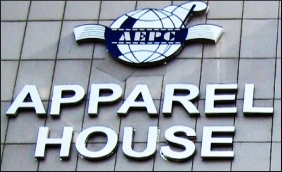|

|
AEPC demands separate chapter for exports in banking sector
|
|

|
|
| Top Stories |
 |
|
|
|
SME Times News Bureau
The nodal agency for the textiles exports, Apparel Export Promotion Council (AEPC), Wednesday expressed its concern over the central bank's status quo on Mid-term Monetary policy and has urged for separate chapter for exports in the banking sector.
"AEPC has already requested for separate chapter for pre/post packing credit rate of 7.5 percent. Even the Padmanabhan committee constituted by RBI has recommended this sector to be covered under the priority sector lending. RBI should consider this favorably so that momentum of garment export growth is not lost," Chairman of Apparel Export Promotion Council (AEPC), Dr A. Sakthivel said in a press statement, released on Wednesday.
RBI has same day released the Mid-term Monetary policy; December 2013 where the key rates like repo rate, CRR, Bank rate and reverse repo rate remained unchanged, Sakthivel said, "The textiles exporters were not very happy with the announcement made today."
With RBI resisting any reduction of interest rate/ repo rate, Chairman AEPC expressed his concerned that the momentum of the garment export growth may be slowed down.
Further, increase with rupee strengthening over dollar. In his statement issued, after the announcement of RBI Mid-Term Monetary policy, Chairman AEPC said, "With the inflation hovering at 14 month high of 7.52 percent and slow manufacturing growth of 1.8 percent for the month of October, industry was expecting some relief in terms of lowering of interest rate. The import being all time low after March 2011 provided fiscal room for RBI to reduce the interest rate."
This job critical industry is suffering from high input cost leading to reduced profit margins. "Majority of our factories are SME's and an employment generating sector, and due to adverse consequences of not lowering interest rates, it might lead to the loss of jobs and further slowing of manufacturing activity," he added.
|
|
|
| |
|
|
|
|
|
|
|
Separate Chapter for exports in Banking sector
Prabhat Kumar | Thu Dec 26 04:13:45 2013
I will also favour this policy.Its help the export business and very beneficial for exporters.

|
|
|
|
|
|
|
| |
| Customs Exchange Rates |
| Currency |
Import |
Export |
US Dollar
|
â¹91.35
|
89.65 |
UK Pound
|
â¹125.3
|
â¹121.3 |
Euro
|
â¹108.5
|
â¹104.85 |
| Japanese
Yen |
â¹58.65 |
â¹56.8 |
| As on 19 Feb, 2026 |
|
|
| Daily Poll |
 |
 |
| What is your primary "Make or Break" expectation from the Finance Minister this year? |
|
|
|
|
|
| Commented Stories |
 |
|
|
|
|
|
| |
|